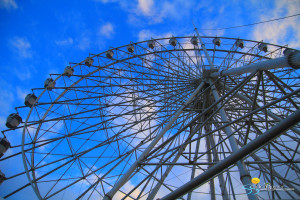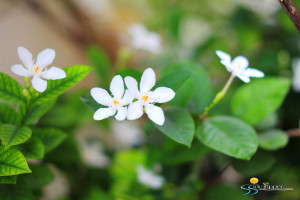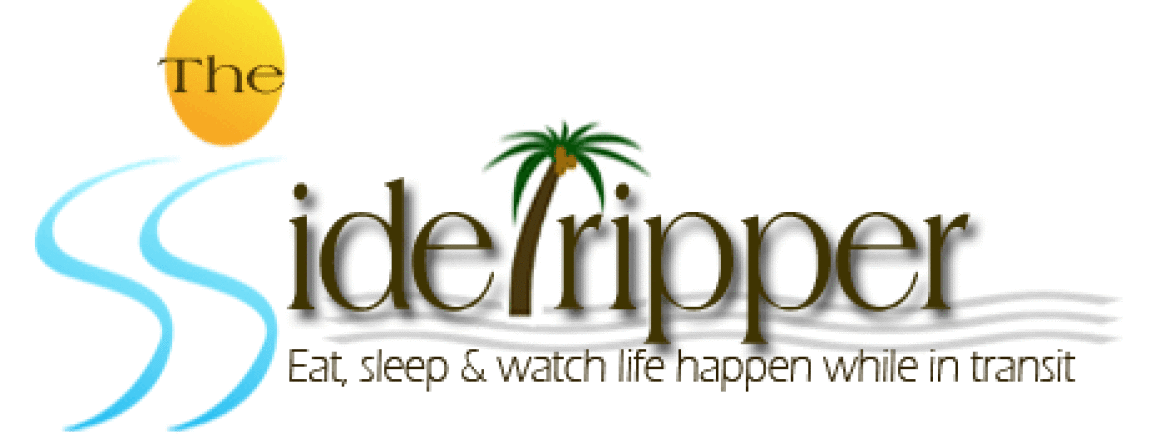“We have taller buildings, but shorter tempers;
wider freeways, but narrower viewpoints;
we spend more, but enjoy less. We laugh too little,
drive too fast, get too angry too quickly,
stay up too late, get up too tired;
These are the days of quick trips, disposable diapers,
one-night stands, overweight bodies, & pills
that do everything from cheer, to quiet, to kill.”
–From a poem in an email entitled: “Too Much,Too Little”
“I’M SO STRESSED OUT!”, “Ayoko na… burnt-out nako!” These claims are just too common these days that it’s easy to feel numb about them already. As we live in an era where things are supposed to be “easier”, faster, more convenient and hi-tech, it is ironic that people appear less secure and more stressed-out. Worry and fear became more prevalent— and anxiety, the reaction to the presence of stress, became an epidemic among us, modern men.
 Remembering the lines my Psychology professor keeps saying “nothing persists without a purpose”, I wondered about the purpose of this persistent stress, fear and anxiety around us. Does it have something to do with our need to be always on-guard like our primitive ancestors? Or does it have something to do with how we equate worrying with being responsible? Or our belief that stress brings out the best in us… Or maybe, it has something to do with things being “too much and too little” for many of us. In any case, it seems that best way out of this is simply to accept that anxiety is a “way of life”. It seems…
Remembering the lines my Psychology professor keeps saying “nothing persists without a purpose”, I wondered about the purpose of this persistent stress, fear and anxiety around us. Does it have something to do with our need to be always on-guard like our primitive ancestors? Or does it have something to do with how we equate worrying with being responsible? Or our belief that stress brings out the best in us… Or maybe, it has something to do with things being “too much and too little” for many of us. In any case, it seems that best way out of this is simply to accept that anxiety is a “way of life”. It seems…
I must admit that I am starting to feel complacent about the reality of stress & anxiety (Oh yes, everybody’s anxious these days… and with all the wars, crises and bad news around, who wouldn’t be?). But after someone I know paid dearly for his severe stress and anxiety attacks (he developed a mild case of leukemia for sleeplessness—a major symptom of anxiety— and failed to respond to treatment because of his psychological anxiety), I was compelled to take a second good look at anxiety again.
I can’t help but think of how anxiety robs us the opportunity to “live a life” —a life that is secure, fulfilling and happy. And again, what struck me is that, many times anxiety results from “how we think and perceive things”— accurate or inaccurate. It is upsetting to realize that the reason for our anxiety can be real or unreal. That all these sufferings— which starts from our thinking, then transmitted to our brain system and eventually affecting our physiological functioning— can just be neurological lies! True to what Descartes said, “I think, therefore I am”. To me, this implies that we can exercise choice on this one— to choose what to input in our minds so as to cause or avoid undue anxiety.
It is alarming to think of the way modern man keeps exposing himself to a lot of stress, whether positive or negative. It seems that stressful events like winning a game or a case(positive), or beating an impossible deadline (negative) brings a certain high that our generation crave for. What struck me most was the fact that anxiety—a word we are starting to feel complacent about— underlies most of the psychological disorders. Anxiety is the most common feature of majority of psychiatric illnesses, and stress actually accumulates.
We wake up, eat, go to work, accomplish things, go to bed and wake up again and go through our usual routine. And all these time, we live a life that is a little more fearful and anxious than before; pressured of the many “what if’s”, as if everyday is something to survive than live. The sad thing is, at some point, anxiety no longer serves to protect us, or bring out the best in us. Instead, anxiety breaks us down.
The funny thing is, what we get anxious or stressed about are largely subjective and future-oriented. In one of the books of Dr. Joseph Campbell (“Rapid Relief from Emotional Stress”) he noted that 95% of the things we worry about, or get anxious about do not happen. What a waste of energy… it is sad to think of how our subjective, future-oriented fears rob us the opportunity to cherish the here-and-now. Like in phobic disorders, our fear is already too much for the circumstance. Even when its time to be grateful and content, we can choose to be fearful about the what if’s in the future and panic.
So what are the options that can help people alleviate their anxiety? Of course, psychotherapy (like cognitive-behavioral techniques, insight and supportive psychotherapies), together with anti-anxiety medicines seems to be the most popular therapeutic option. But preventive measures are still the best way to go. It’s good to know that the many research in the field of psychology establish the fact that people have the inner strength to cope and deal with stress and anxiety. We need to tap that strength through simple yet powerful means like meditation, relaxation and humor.
 True to what old proverbs say, “take time to smell the flowers”, “remember to pray before you sleep”, “a merry heart doeth good like a medicine”. Basic & simple strategies that are readily available and proven helpful.
True to what old proverbs say, “take time to smell the flowers”, “remember to pray before you sleep”, “a merry heart doeth good like a medicine”. Basic & simple strategies that are readily available and proven helpful.
And of course, we must also realize that where stress and anxiety is concerned, BALANCE is the key. Not too little and definitely NOT TOO MUCH.








